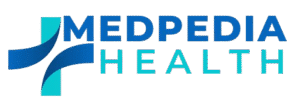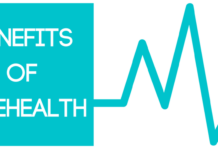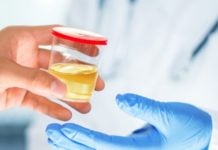Your thyroid plays a key role in regulating energy, metabolism, and hormonal balance. The thyroid-stimulating hormone (TSH) blood test is often the first step in assessing whether your thyroid is functioning properly. This simple and quick test can detect potential thyroid issues, whether you’re experiencing symptoms like unexplained fatigue, weight changes, or just getting a routine check-up. This guide will explain how to prepare for your TSH test, what to expect during the process, and what happens afterward, so you feel informed and confident.
What Is a TSH Blood Test?
The thyroid-stimulating hormone level in your blood is determined by the TSH test. The pituitary gland secretes TSH, which instructs the thyroid to release its hormones, mainly T3 (triiodothyronine) and T4 (thyroxine).
TSH levels typically increase if you have hypothyroidism, or an underactive thyroid. TSH tends to decrease if it is hyperactive (hyperthyroidism). For this reason, thyroid disorders are screened for, diagnosed, and tracked using this test.
Although the TSH test is usually the first and most significant indicator, your doctor may occasionally also order a full thyroid panel that includes free T3, free T4, and thyroid antibodies.
Before the Test: How to Prepare
Although the TSH blood test is simple, there are a few factors to take into account to ensure the most accurate results.
1. Check If Fasting Is Required
Fasting is usually not required for a TS test, so you can eat and drink normally beforehand. However, if your TSH test is part of a broader blood panel that includes tests for insulin, glucose, or cholesterol, you may need to fast for 8–12 hours. Always confirm with your healthcare provider.
It’s best to check in advance with your testing clinic or healthcare provider if you’re not sure.
- Take Your Medication As Directed
TSH levels can be affected by certain medications, particularly antithyroid drugs and thyroid hormone replacements (such as levothyroxine). Although you shouldn’t stop them before the test, it’s crucial to:
- Take them at the same time of day as usual
- Inform your physician or phlebotomist about your medication regimen.
- Don’t double up or skip doses prior to the test; instead, be consistent.
Your provider will provide specific instructions if they wish to test TSH without the effects of medication (for example, prior to beginning treatment).
- Time of Day Matters
TSH levels typically peak early in the morning and fall later in the day, following a normal daily cycle. If you want the most accurate results, particularly if you’re tracking changes over time, you should:
- Schedule your test for the morning, preferably between 8:00am and 10:00am.
- If you are conducting repeat tests, maintain a consistent testing time.
- Let Your Doctor Know About Supplements and Other Medications
TSH levels and thyroid function may be impacted by certain drugs and supplements. Typical instances consist of:
- Vitamin B7, or biotin
- Steroids
- Estrogen (e.g., hormone replacement therapy or birth control)
- Lithium
- Supplements that contain iodine
Before your test, make a list of everything you’re taking, including over-the-counter medications.
- Stay Hydrated and Relaxed
Being properly hydrated can facilitate the blood draw, but there is no special diet or preparation needed. Additionally, since these may subtly alter hormone levels, try to avoid heavy exercise, alcohol, or extreme stress the night before.
During the Test: What to Expect
The TSH test is a simple blood draw. Here’s what typically happens:
- You’ll sit in a chair with your arm extended.
- A phlebotomist will apply a tourniquet to your upper arm to find a vein.
- A needle is placed into a vein (often in the crease of your elbow) after the area has been cleaned.
- A small amount of blood is collected in a vial.
- The procedure is usually minimally painful and only takes a few minutes.
- A bandage is applied, and you can return to your normal activities immediately.
Tell the technician if you have a needle phobia or are prone to dizziness, and they will make the procedure as comfortable as possible.
After the Test: What Happens Next?
1. Recovery and Side Effects
No recuperation time is required. There may be a tiny bruise, a slight sting, or tenderness where the needle was inserted, but these side effects should go away quickly.
If that arm feels sore, stay away from intense activities for a few hours and drink lots of water.
- Getting Your Results
TSH test results are typically available within 24 to 72 hours, depending on the lab. The standard reference range for TSH in adults is usually around:
- 0.5 to 4.0 mIU/L (though this can vary slightly by lab)
Your doctor will consider your symptoms, medications, and other hormone levels when interpreting your results.
- What the Results Might Mean
| TSH Level | Possible Interpretation |
| High | Hypothyroidism (underactive thyroid) |
| Low | Hyperthyroidism (overactive thyroid) |
| Normal | Likely healthy thyroid function |
However, “normal” isn’t the same for everyone. Your doctor may recommend further testing, like free T3/T4 or antibodies, to get a more complete picture.
- Follow-Up
If your TSH is abnormal, your provider may:
- Recommend repeat testing in a few weeks
- Request extra T3, T4, or thyroid antibody testing.
- Refer you to an endocrinologist
- Start or modify your thyroid medication.
- Suggest lifestyle changes, such as dietary iodine intake
The test assists those who are currently receiving treatment in determining whether their current dosage is effective and whether any modifications are required.
Final Thoughts
One of the most accurate and convenient methods to evaluate your thyroid function is the TSH test. It can help explain a variety of symptoms, including anxiety, hair loss, weight gain, and fatigue. It’s also quick and reasonably priced.
Accurate results and the avoidance of repeat testing are guaranteed by careful preparation. Knowing the procedure can make you feel more in control, regardless of whether you’re monitoring a known condition or checking thyroid health for the first time.
References
- London GP Clinic – How to Prepare for a Thyroid Function Test: A Step-by-Step Guide
https://www.londongpclinic.co.uk/blog/how-to-prepare-for-a-thyroid-function-test-a-step-by-step-guide - Mayo Clinic – Hypothyroidism
https://www.mayoclinic.org/diseases-conditions/hypothyroidism/diagnosis-treatment/drc-20350289 - Cleveland Clinic – Thyroid Tests
https://my.clevelandclinic.org/health/diagnostics/17556-thyroid-blood-tests - American Thyroid Association – Thyroid Function Testing
https://www.thyroid.org/thyroid-function-tests/












